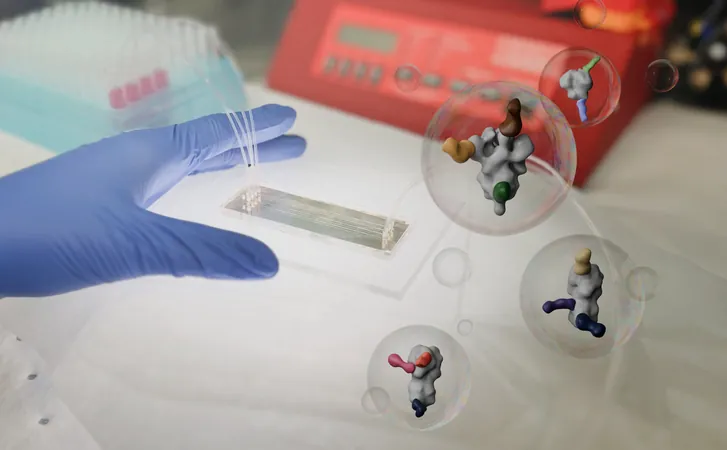
Revolutionizing Poultry Health: Groundbreaking mRNA Vaccine Using Nanoparticles
2025-06-05
Author: Ming
A Game-Changer for Chicken Farmers
In a groundbreaking study, researchers from UConn are shaking up the poultry industry by enhancing mRNA vaccine technology with innovative nanoparticles. This could be the solution poultry farmers have been waiting for to combat infectious bronchitis virus (IBV), a rapidly spreading coronavirus that causes devastating losses worldwide.
The Battle Against IBV
Every year, farmers rack up millions of dollars in losses due to IBV. Traditionally, they rely on live attenuated or killed vaccines, which come with significant risks. These vaccines can potentially reactivate or mutate, leading to even more virulent strains, and they often require extra additives to work effectively.
Meet the Next-Gen mRNA Vaccine
The team, led by experts including Professor Mazhar Khan and Emeritus Professor Challa V. Kumar, has developed a next-generation mRNA vaccine that could change the game altogether. Unlike traditional vaccines that use live viruses, this mRNA-based approach encodes a piece of the virus’s genetic material, enabling the immune system to prepare a robust response.
Addressing Stability Issues
mRNA vaccines are known for their superior safety but have a major hurdle: instability. They break down quickly and need cold storage, a challenge for large-scale poultry operations. That’s where the novel nanoparticle comes in, designed to shield the mRNA from degradation.
How It Works: The Nanoparticle Revolution
Using a modified bovine serum protein, which is safe and cost-effective, the researchers developed nanoparticles that stabilize the mRNA. By attaching positively charged amino groups, they effectively trap the negatively charged mRNA, ensuring it remains intact long enough to work its magic. Early tests revealed a staggering 1,000-fold increase in antibodies against IBV in vaccinated chickens compared to unvaccinated ones!
Towards Stress-Free Vaccination
In a bid to further improve the vaccination process, the team is exploring spray-based administration methods instead of traditional injections. This would allow farmers to immunize entire flocks quickly and without the stress typically experienced by the chicks.
Broader Implications for Human Health
While IBV poses no threat to human health, the implications of this nanoparticle-vaccine technology stretch well beyond poultry. This advancement could pave the way for rapid development of effective mRNA vaccines against a range of diseases affecting humans. "We just need the specific sequence of a gene to jumpstart vaccine development," Khan states confidently.
A Promising Future Ahead
With promising results from their initial studies, UConn researchers are on the brink of revolutionizing both poultry health and broader vaccine technology. This could mark a significant leap forward in our quest for more effective and stable vaccines across the board.



 Brasil (PT)
Brasil (PT)
 Canada (EN)
Canada (EN)
 Chile (ES)
Chile (ES)
 Česko (CS)
Česko (CS)
 대한민국 (KO)
대한민국 (KO)
 España (ES)
España (ES)
 France (FR)
France (FR)
 Hong Kong (EN)
Hong Kong (EN)
 Italia (IT)
Italia (IT)
 日本 (JA)
日本 (JA)
 Magyarország (HU)
Magyarország (HU)
 Norge (NO)
Norge (NO)
 Polska (PL)
Polska (PL)
 Schweiz (DE)
Schweiz (DE)
 Singapore (EN)
Singapore (EN)
 Sverige (SV)
Sverige (SV)
 Suomi (FI)
Suomi (FI)
 Türkiye (TR)
Türkiye (TR)
 الإمارات العربية المتحدة (AR)
الإمارات العربية المتحدة (AR)